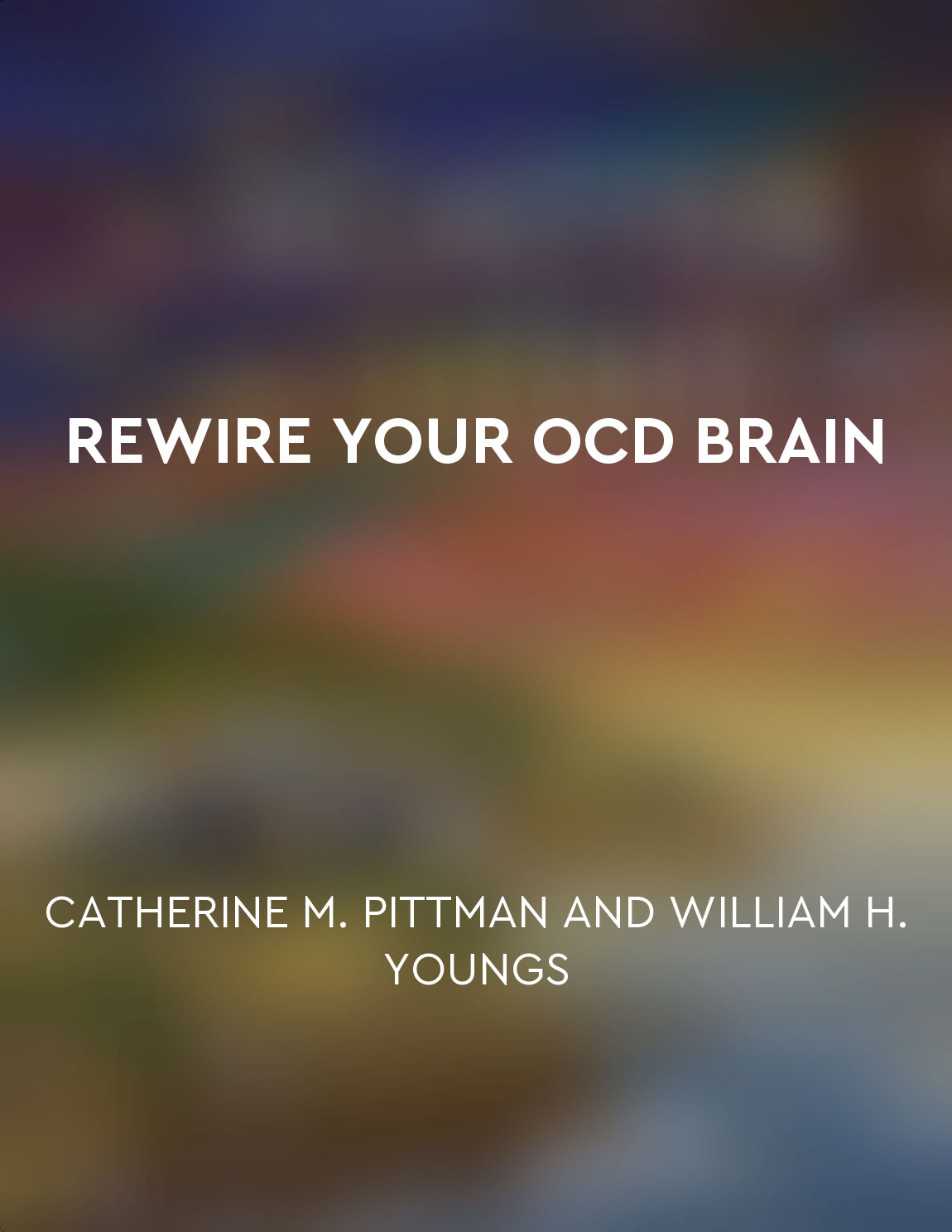Audio available in app
Implement relaxation exercises for stress relief from "summary" of REWIRE YOUR OCD BRAIN by CATHERINE M. PITTMAN AND WILLIAM H. YOUNGS
Relaxation exercises provide an effective strategy for reducing stress, a common trigger for OCD symptoms. By incorporating relaxation techniques into your daily routine, you can learn to calm your mind and body, making it easier to manage the anxiety that often accompanies obsessive thoughts and compulsive behaviors. One relaxation exercise to consider is deep breathing. This simple technique involves taking slow, deep breaths in through your nose, holding the breath for a few seconds, and then exhaling slowly through your mouth. Deep breathing can help activate the body's relaxation response, reducing tension and promoting a sense of calm. Progressive muscle relaxation is another valuable tool for stress relief. This exercise involves systematically tensing and relaxing different muscle groups in your body, helping to release physical tension and promote relaxation. By focusing on each muscle group individually, you can become more aware of where you hold tension and learn to release it consciously. Mindfulness meditation is a powerful practice that can help you cultivate present-moment awareness and reduce rumination on obsessive thoughts. By focusing on the sensations of your breath or body, you can bring your attention back to the present moment and break the cycle of anxious thoughts that fuel OCD symptoms. Mindfulness meditation can also help you develop a nonjudgmental attitude toward your thoughts and feelings, reducing the emotional intensity that often accompanies OCD symptoms. Yoga combines physical movement with breath awareness, making it a valuable practice for reducing stress and promoting relaxation. The gentle stretching and mindful breathing of yoga can help release physical tension and promote a sense of calm. Additionally, the focus on balance and mindfulness in yoga can help you cultivate a sense of inner peace and resilience in the face of OCD symptoms.- You can develop skills for managing stress and anxiety, reducing the impact of OCD symptoms on your life. With practice, these techniques can become powerful tools for promoting emotional well-being and enhancing your overall quality of life.


